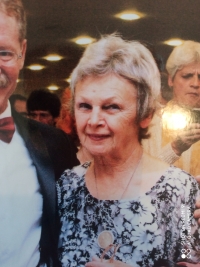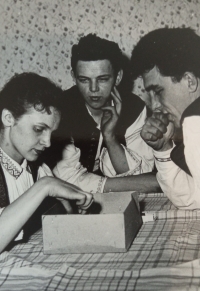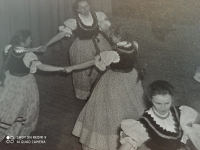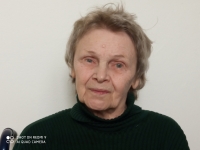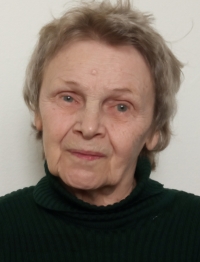When I was interrogated by the secret police, I was so afraid I whispered

Stáhnout obrázek
She was born on 22 September 1939 in Orlova, Karviná region. Her father, Walter Hubert Šlachta, like other men from the area, had to enlist in the German army during World War II. The family had no information about him after the war. It was not until many years later that it was discovered that he had survived, but found a new wife in France and refused to return home. Sylva Wernhart graduated from high school, worked as a nurse for physical therapy and then at the Institute of Medical Cosmetology in Ostrava. Her husband, Zdeněk Wernhart, a doctor, was involved in smuggling banned printed materials during the totalitarian regime and was sentenced to ten months in prison. She was followed and interrogated by the State Security and her apartment was searched. She became friends with Jaromír Šavrda, an Ostrava dissident and signatory of Charter 77, and his wife Dolores Šavrdová. They shared a penchant for breeding exotic cats, which served as a cover for the dissemination of samizdat literature. She helped Jaromír Šavrda to escape the attention of the State Security. After her divorce from her husband, she lived alone and kept cats until she became seriously ill and had to move to the Korýtko senior citizens‘ home in Ostrava, where she lived in 2023, at the time of the interview.
